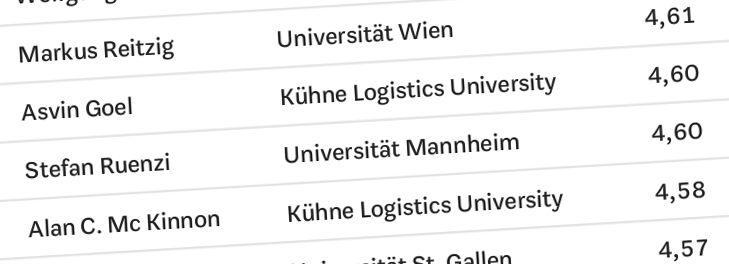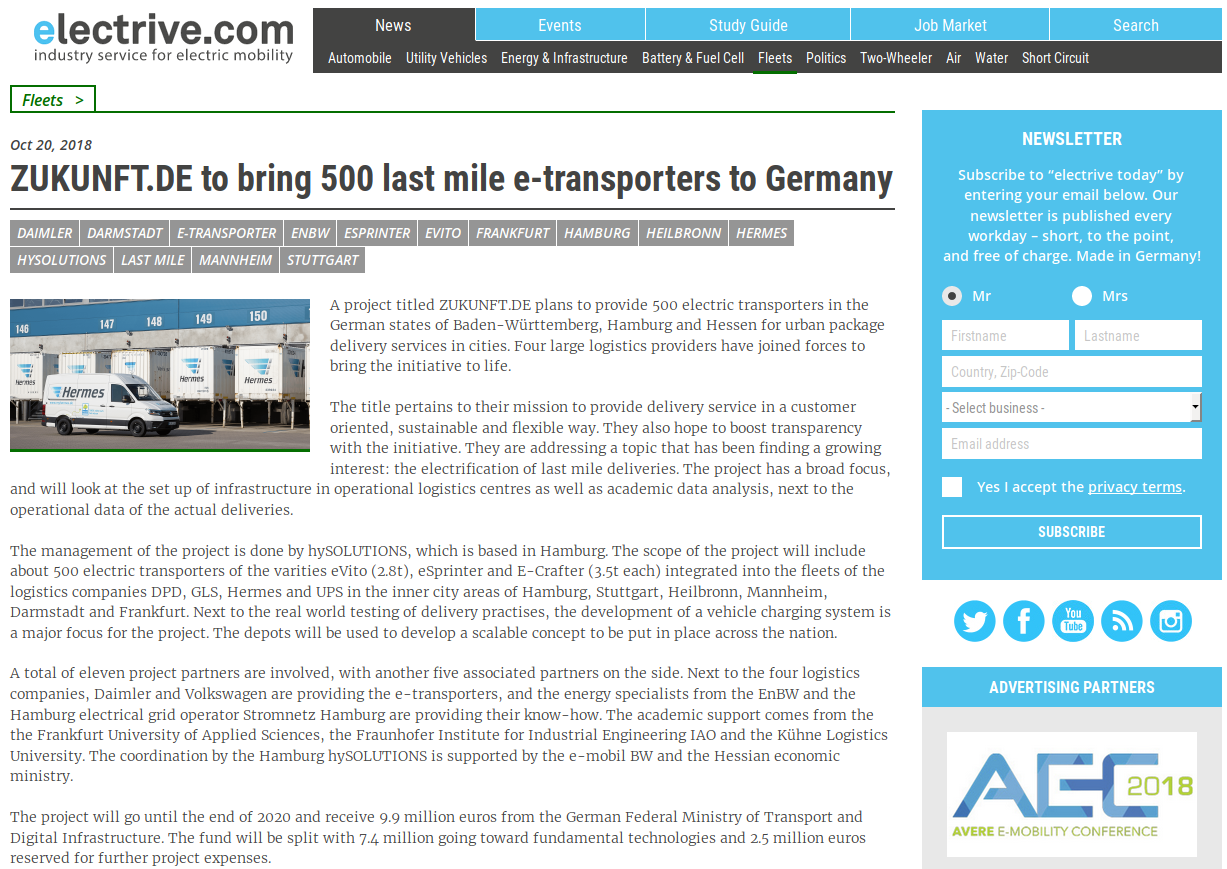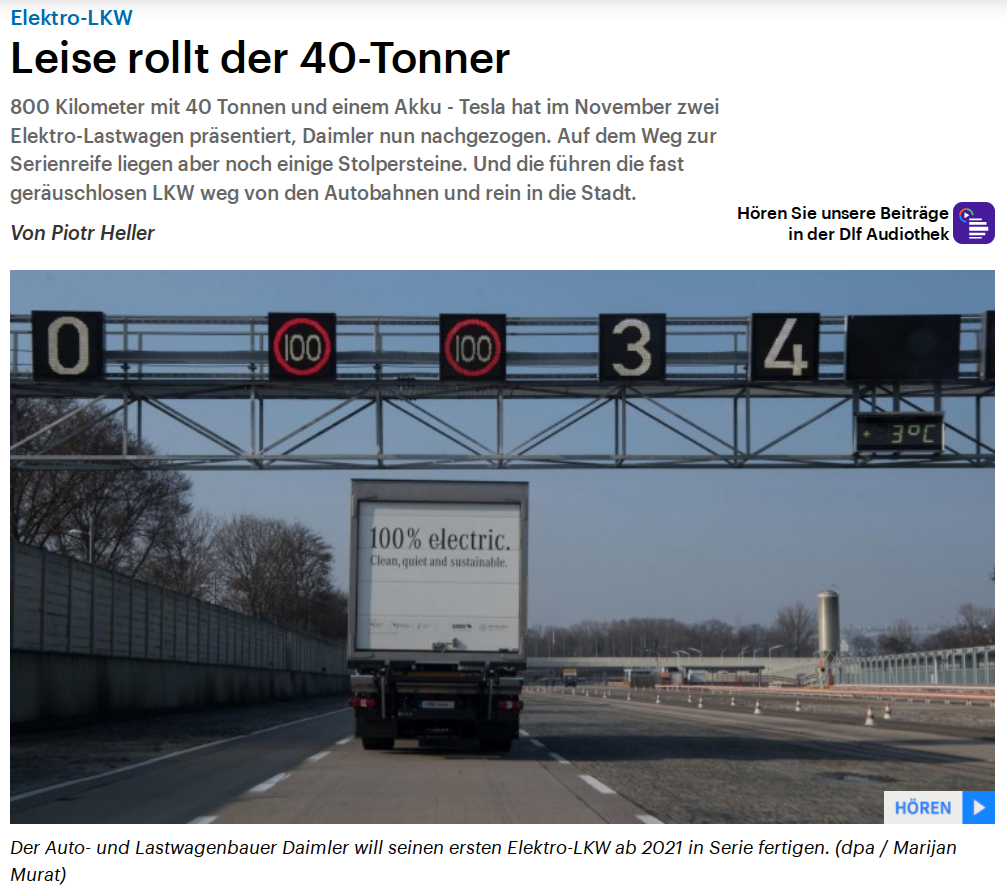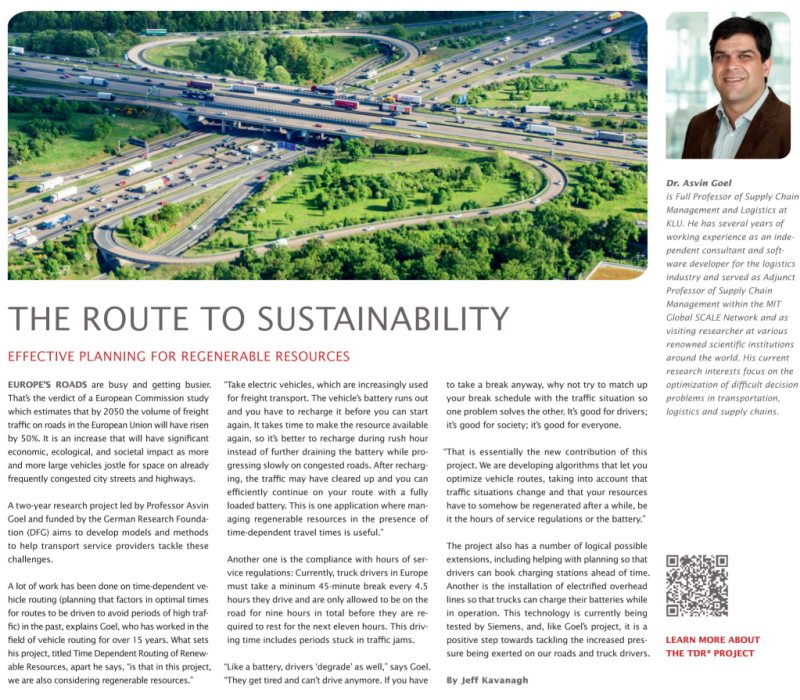INFORMS TSL Best Paper Award in Facility Logistics
Posted on November 24, 2021 10:15Together with my co-authors Dr. Arpan Rijal (University of Groningen), Dr. Marco Bijvank (Haskayne School of Business, University of Calgary) and Prof. René de Koster (Rotterdam School of Management) our paper Workforce Scheduling with Order-Picking Assignments in Distribution Facilities has been selected for this year’s INFORMS Transportation Science and Logistics (TSL) Society Best Paper Award in Facility Logistics.
In our paper, we investigate workforce scheduling with order-picking assignments in distribution. The study was conducted in close collaboration with the largest supermarket chain in the Netherlands and puts forward an alternative method for assigning pickers to batches of orders in the retailer’s warehouses.
The annual TSL Best Paper Award goes to an outstanding paper in the field of transportation science and logistics. To win, a paper must present innovative approaches to solving complex problems in transportation or logistics, with an emphasis on operations research and quantitative methods.
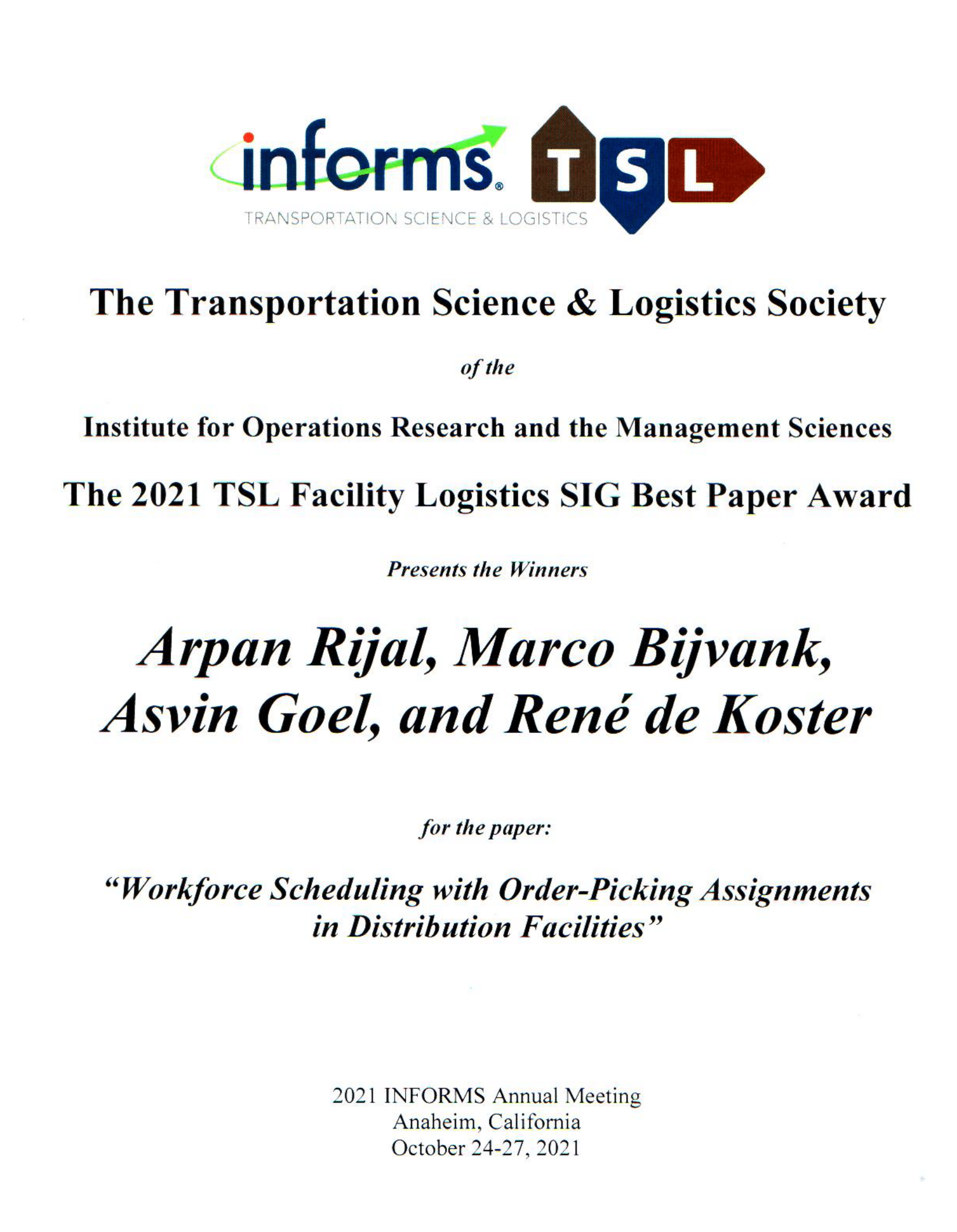
Wirtschaftswoche BWL Ranking 2019
Posted on January 19, 2019 15:15In the new ranking of researchers in the broad field of business studies in Germany, Austria and Switzerland, I was listed among the researchers with the strongest life-time research performance (read more).
The Wirtschaftswoche BWL Ranking only considers researchers from German speaking countries. A ranking with the same methodology considering researchers world-wide can be found here.
ZUKUNFT.DE to bring 500 last mile e-transporters to Germany
Posted on October 22, 2018 11:00Research grant on last-mile deliveries with electric vehicles
Posted on October 19, 2018 17:12
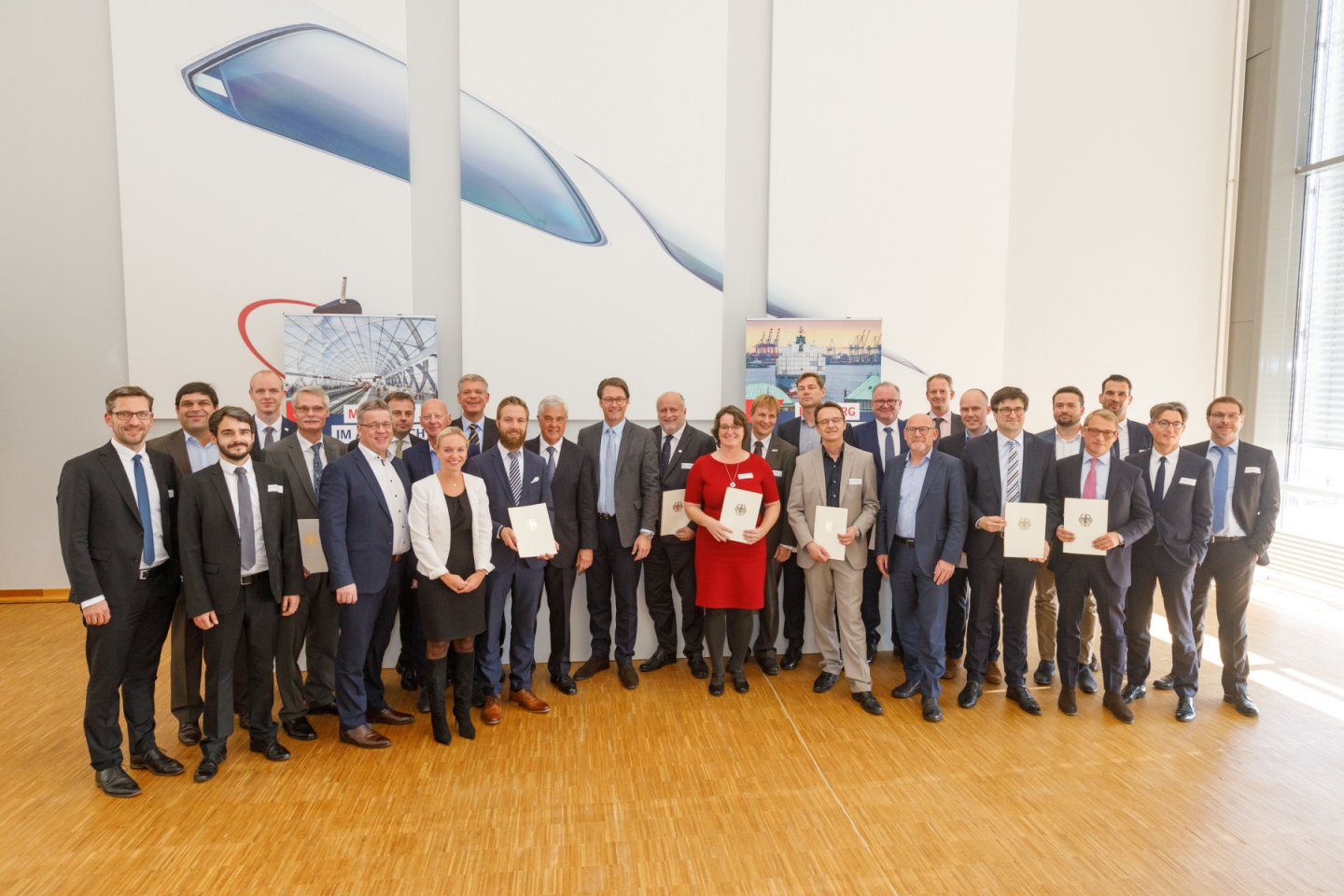
Photo: Marcelo Hernandez
Happy to finally start working on a major research project funded by the Federal Ministry of Transport and Digital Infrastructure (BMVI). The project aims at a large-scale roll-out of electric vehicles for last-mile deliveries in several German cities and will be conducted in collaboration with major parcel delivery companies UPS, Hermes, DPD, and GLS, automotive manufacturers Daimler and Volkswagen, and other partners from industry and academia.
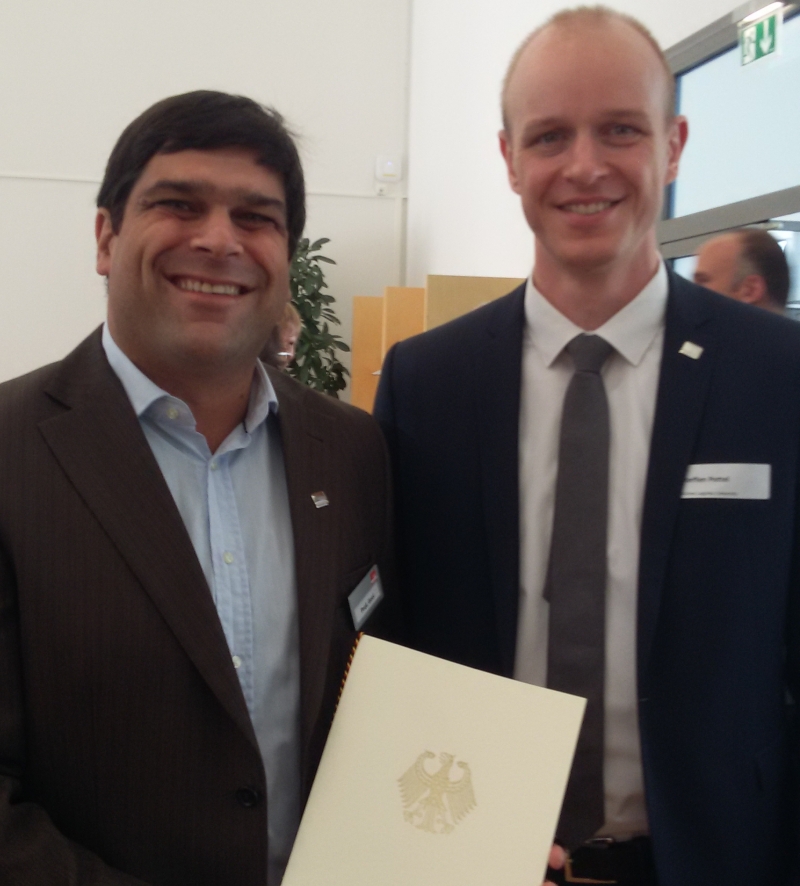
P-Rank: a publication ranking
Posted on August 24, 2018 10:32P-Rank is a new service intended to increase visibility of researchers with notable publication output. You can find the tool here.
P-Rank provides a publication ranking based on the weighted publication output per author. The weights are obtained from journal lists and the number of co-authors. It is possible to select your favourite journal list from various alternatives. Also, P-Rank allows to adjust the way in which co-authored publications are counted.
In order to better acknowledge the publication output of young scholars, P-Rank provides multiple versions of each ranking, where in each version only those articles which have been published since a particular year are considered. Similarly, P-Rank allows to restrict the ranking to certain regions and countries in order to acknowledge potential differences in the research environment.
The service is based on publication data from ORCID and it is easy to connect your ORCID record. If you already have all your publications visible in your ORCID record, your data may directly be recognised by the service and you only need to connect your ORCID iD in the author profile section. After connecting your ORCID iD, you can review the list of your publications. If some of your publications are missing in the list, please follow the instructions in the note below the list of publications.
Make sure your excellent work is recognised!
Presentation of the 2014 Best Paper in Transportation Science & Logistics
Posted on November 14, 2014 04:34
New hours of service regulations in the United States
Posted on October 29, 2013 20:53In July 2013 new hours of service regulations entered into force in the United States. The rule change was based on a regulatory impact analysis conducted by the Federal Motor Carrier Safety Administration (FMCSA). Unfortunately the analysis of the FMCSA has several shortcomings. It does not consider the fact that motor carriers can optimise routes and schedules to mitigate the cost impact of a regulatory change and it does not consider the effect of cumulative sleep loss. We analysed how reducing the daily driving time limit would impact operational costs and road safety considering these issues. Based on a detailed model of the new regulation and a new simulation-based method to assess the impact of hours of service regulations we found that reducing the daily driving time limit to at most 10 hours would reduce accident risks by around 5% while transportation costs would increase by less than 1%. Reducing the daily driving time limit to 9 hours would reduce accident risks by up to 10% and increase transportation costs by less than 2%. Considering these findings, it may be necessary to reconsider whether the daily driving time limit should be reduced or not.
References
- Asvin Goel, Hours of service regulations in the Unites States and the 2013 rule change, in: Transport Policy, 33(48-55), 2014
- David Cullen, Putting math to work to cut HOS impact, Fleet Owner, August 7, 2013

